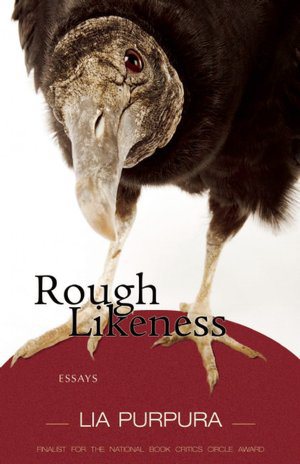 So what animal would you be if you could come back again? I cringed every time the teacher asked us this question.
So what animal would you be if you could come back again? I cringed every time the teacher asked us this question.
I never wanted to be an animal, except maybe a sacred cow in India, free to wander the streets, showered with treats, and totally loved. Short of that, I’ve always felt that animals (particularly wild ones) lived like fugitives, twitching, looking over their shoulders to see if they were about to become someone’s next meal.
However, if pressed, particularly by the teacher’s impatient scowl, I’d blurt out: flamingo. No one else had thought of it, and it struck me that this bony bird, covered in feathers, wouldn’t be particularly appetizing. Plus, I’ve always thought the flamingo to be a bit magical with its long hooked neck, dazzling pink tutu body perched on pointe.
In contrast, writer and poet Lia Purpura tells us that she’d come back as a buzzard. I bet no one in her class thought of that.
“I know, coming back as a crow is a lot more attractive,” she writes in her first of nineteen essays in Rough Likeness: Essays (Sarabande Books, 2011.) “If crows and buzzards do the same job—picking, tearing and cleaning up—who wouldn’t rather return as a shiny blue crow with a mind for locks and puzzles. A strong voice, and poem-struck. Sleek, familial, omen-bearing. Full of mourning and ardor and talk.”
Purpura likes a challenge, especially one that’s difficult. (In fact, she spends an entire essay arguing with herself why she should, but mostly shouldn’t, use the cliché “gunmetal sky.”) Why? She believes in working harder, reaching higher, retrieving that item pushed to the back of the store shelf
There’s reward in the extra effort:
I’d get to be one, who, when passed the plate, seeks first the succulent eye. This would make me: foreigner. Stubborn lover of scraps and dark meat. Base. Trained on want and come to love piecemeal offerings—the shreds and overlooked tendernesses too small for a meal, but carefully, singularly gathered—like brief moments that burst: isolate beams of sun in truck fumes, underside of wrist against wrist, sudden cool from a sewer grate rising.
At first, Purpura seems to meander as she wanders from the pluck of an eye to the dance of “beams of sun in truck fumes.” But by second or third read, it’s understood. These moments arise as surprises, seen only if we take time to look.
Scavenging, scraping, surgically parsing, and digging deep to find the sweetest morsel is Purpura’s metaphor to her own way of thinking and writing. In her essay “Jump,” she studies a sign on the bridge: Last Death from Jumping or Diving from Bridge, June 15, 1995. It’s the “or” that perplexes and intrigues her. Was it an accident or a suicide? She asks local residents, but no one seems to know. Thus, she lingers on the bridge, studying the water, weighing the “or” possibilities.
Beyond being an essayist, poet, and lyrical juggler, Purpura understands the way writers turn a word or phrase over and over until discovering its sweet underbelly. She’s also fearless, looking where most of us turn away, as with her essay on the beauties of excrement.
Though Purpura and I can’t agree on the birds would be, we do agree, if returning hinges on a reward system, there’s no coming back.
“The idea of things I did or failed to do in a lifetime fixing the terms of my return,” she writes. “As soon as I imagine returning anew (brave stallion—reward, dung-beetle—reproach) I lose heart. It’s too easy.”
On the other hand, I lose heart thinking this blithe game of choosing turning into an imposed life sentence. It’s too hard.
—
Debbie Hagan is a writer, editor, and Book Reviews Editor for Brevity online literary magazine. She has an MFA from Goucher College, and her work has appeared in various media, including Boston Globe Magazine. She is working on a memoir.
